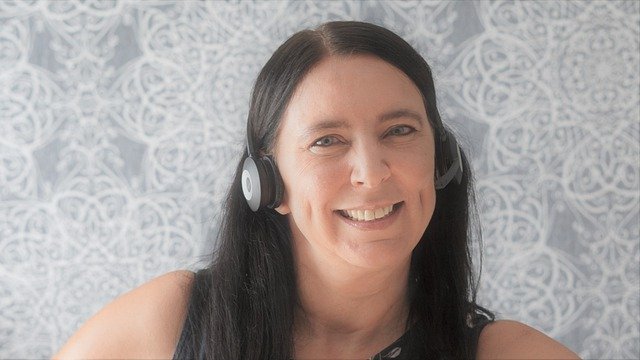The Variations on Privilege.
This article on Orthodox Privilege by Paul Graham was quite interesting to read. It helps me put a name to something that I’ve seen is occurring more often.
Despite the fact that I am not a fan of how often the term “privilege” is used in ineffective and contentious ways, it is still a notion that is helpful and necessary.
The essence of privilege is in the fact that it causes individuals to be oblivious to realities that are readily apparent to others whose experiences contrast with their own.
For instance, I was a poor, white, and fatherless guy in America while I was growing up.
Consequently, one may accuse me of having “white male privilege.”
It is accurate, and if we disregard the political and moralistic connotations that are associated with this phrase, then it indicates that I am oblivious to the experience of being a person of color and/or a woman in the United States of America.
While I did have “white male privilege,” I did not have what I would refer to as “money advantage” or “stable family privilege” while I was growing up. Consequently, I was not oblivious to the sense of being without money or a secure family unit.
If access to privileged information were a game of cards, I would have been handed a mix of both favorable and unfavorable hands. This is something that applies to everyone. Each of us has been given a hand of cards. And the quality of our lives is decided in part by what those cards are, and in part by how we choose to play those cards as the game of life continues to progress.
If we want to talk about privilege in a manner that is productive and does not divide people, then we need to take a more comprehensive look at what privilege entails. To put it another way, privilege has a lot more to do with you than your color or gender.
The financial standing, health, intellect, and beauty of an individual, in addition to the myriad of other factors that determine the character and quality of one’s experiences in this world, are all components of privilege.
In today’s world, I hear a lot of individuals discussing privilege in relation to racial issues and gender issues. The majority of the time, it seems like these conversations spark more anger and division rather than positive action and compassionate understanding.
Imagine, for the sake of argument, that you hold the belief that the combination of being white and male entitles you to an easy existence. Based on this myth, you may conclude that life is simpler for all white men in general.
So you’re having a discussion with a white man who is struggling, and you tell him, “Check your privilege. Try living your life as a woman who is also black.
Your goals are admirable; you want this guy to understand the benefits that he has in comparison to those enjoyed by other people in our world. On the other hand, your method is flawed. In a more complicated calculation using privilege, you’re just utilizing two variables.
For instance, what if this man has spent his whole life battling a physical issue that severely limits his ability to function? What if he had to give up his work to take care of his Alzheimer’s patient mother?
What if he was brought up in a situation of tremendous poverty?
His potential blindness to the experience of being a person of color and/or a woman is not diminished in any way by any of these circumstances. And yet, none of these factors necessarily indicate that he is in a better or worse position than someone else.
However, these are all aspects of the nature and quality of this person’s existence, and they will have an impact on how your message is perceived by that individual.
This is particularly crucial to keep in mind if you have a significant advantage in certain areas that he may not. Let’s imagine you were born into a wealthy family, had wonderful health, and were raised by two loving parents who attended an Ivy League institution. What would you do?
Who exactly seems to have the privilege now?
The correct response is that you and she are both privileged but in perhaps different ways.
The debate of today, however, seldom gets into such a degree of specificity. Instead, it encourages concentrating on a limited number of privilege factors as its primary emphasis.
This narrower emphasis will not get us where we want to go if our objective is to foster deeper knowledge and compassion for the ways in which individuals who are not like you in many ways may have different experiences in the world than you do.
Instead of berating individuals or dismissing part of their suffering only on the basis that they have [x] or [y] privilege, we should first approach everyone with a sympathetic eye and a comprehensive perspective of the equation describing their privilege.
And from this point of understanding, we can identify strategies to strengthen everyone’s comprehension of the experiences of other people who may not be like them in some respects in order to better grasp the perspectives of those individuals. We are able to diminish their blind spots.
This learning process may be carried out in a variety of ways, such as by increasing one’s contact with others who are dissimilar to themselves, engaging in talks that are quiet and reflective, reading literature that emphasize the experience of others, and so on.
A careless attitude that encourages people to “check their privilege,” on the other hand, does not teach. This adds to increased division in a culture that places a higher value on too simplified moralistic judgments and labels rather than compassion and complexity.
To conclude, it is important to keep in mind that just having the pleasure of being born in the United States places you in a position that is superior to that of 99 percent of the population in some other nations. According to this point of view, those who were born in the United States are generally doing rather well.
And in my opinion, we are all capable of doing a lot better if we stop criticizing one other so harshly and instead focus on finding helpful methods to learn how we can make this entire process more positive for everyone involved.
19 Excellent Tips That Most People Neglect
The 5 Best Tips For Leading A Happy Life
35 Unusual Advice Items That Most People Forget
44 Strong Quotes To Reach Your Full Potential
Thoughts On Managing The Grieving Process After Losing Someone You Love




